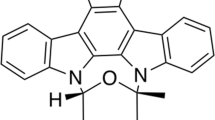Abstract
An in vitro assay system with Eimeria tenella sporozoites was used to study the effects of extracellular calcium and active agents affecting the invasion of parasites into host cells. At concentrations of 900μM Ca2+ and less the invasion rates were distinctly decreased. Ryanodine, a herbal alkaloid known for binding to internal Ca2+ channels (ryanodine receptors), showed an inhibitory effect on E. tenella sporozoite invasion. Preincubation tests and staining with a fluorescent derivative of ryanodine assured that the compound bound specifically to the sporozoites and affected them rather than the host cells.



Similar content being viewed by others
References
Arrizabalaga G, Boothroyd JC (2004) Role of calcium during Toxoplasma gondii invasion and egress. Int J Parasitol 34:361–368
Augustine PC (1980) Effect of polyions, Ca++, and enzymes on penetration of cultured cells by Eimeria meleagrimitis sporozoites. J Parasitol 66:498–505
Bonhomme A, Bouchot A, Pezzella N, Gomez J, Le Moal H, Pinon JM (1999) Signalling during the invasion of host cells by Toxoplasma gondii. FEMS Microbiol Rev 23:551–561
Buck E, Zimanyi I, Abramson JJ, Pessah IN (1992) Ryanodine stabilizes multiple conformational states of the skeletal muscle calcium release channel. J Biol Chem 267:23560–23567
Carruthers VB, Sibley LD (1999) Mobilization of intracellular calcium stimulates microneme discharge in Toxoplasma gondii. Mol Microbiol 31:421–428
Chapman HD (1998) Evaluation of the efficacy of anticoccidial drugs against Eimeria species in the fowl. Int J Parasitol 28:1141–1144
Hoff EF, Carruthers VB (2002) Is Toxoplasma egress the first step in invasion? Trends Parasitol 18:251–255
Hupe DJ, Pfefferkorn ER, Behrens ND, Peters K (1991) L-651,582 inhibition of intracellular parasitic protozoal growth correlates with host-cell directed effects. J Pharmacol Exp Ther 256:462–467
Lovett JL, Sibley LD (2003) Intracellular calcium stores in Toxoplasma gondii govern invasion of host cells. J Cell Sci 116:3009–3016
Mondragon R, Frixione E (1996) Ca2+ -dependence of conoid extrusion in Toxoplasma gondii tachyzoites. J Eukaryot Microbiol 43:120–127
Sutko JL, Airey JA, Welch W, Ruest L (1997) The pharmacology of ryanodine and related compounds. Pharmacol Rev 49:53–98
Vieira MC, Moreno SN (2000) Mobilization of intracellular calcium upon attachment of Toxoplasma gondii tachyzoites to human fibroblasts is required for invasion. Mol Biochem Parasitol 106:157–162
Wiersma HI, Galuska SE, Tomley FM, Sibley LD, Liberator PA, Donald RG (2004) A role for coccidian cGMP-dependent protein kinase in motility and invasion. Int J Parasitol 34:369–380
Williams RB (1994) Safety of the attenuated anticoccidial vaccine ’Paracox’ in broiler chickens isolated from extraneous coccidial infection. Vet Res Commun 18:189–198
Zucchi R, Ronca-Testoni S (1997) The sarcoplasmic reticulum Ca2+ channel/ryanodine receptor: modulation by endogenous effectors, drugs and disease states. Pharmacol Rev 49:1–51
Author information
Authors and Affiliations
Corresponding author
Additional information
All experiments described in this publication comply with the current laws of Germany
Rights and permissions
About this article
Cite this article
Schubert, U., Fuchs, J., Zimmermann, J. et al. Extracellular calcium deficiency and ryanodine inhibit Eimeria tenella sporozoite invasion in vitro. Parasitol Res 97, 59–62 (2005). https://doi.org/10.1007/s00436-005-1388-5
Received:
Accepted:
Published:
Issue Date:
DOI: https://doi.org/10.1007/s00436-005-1388-5




